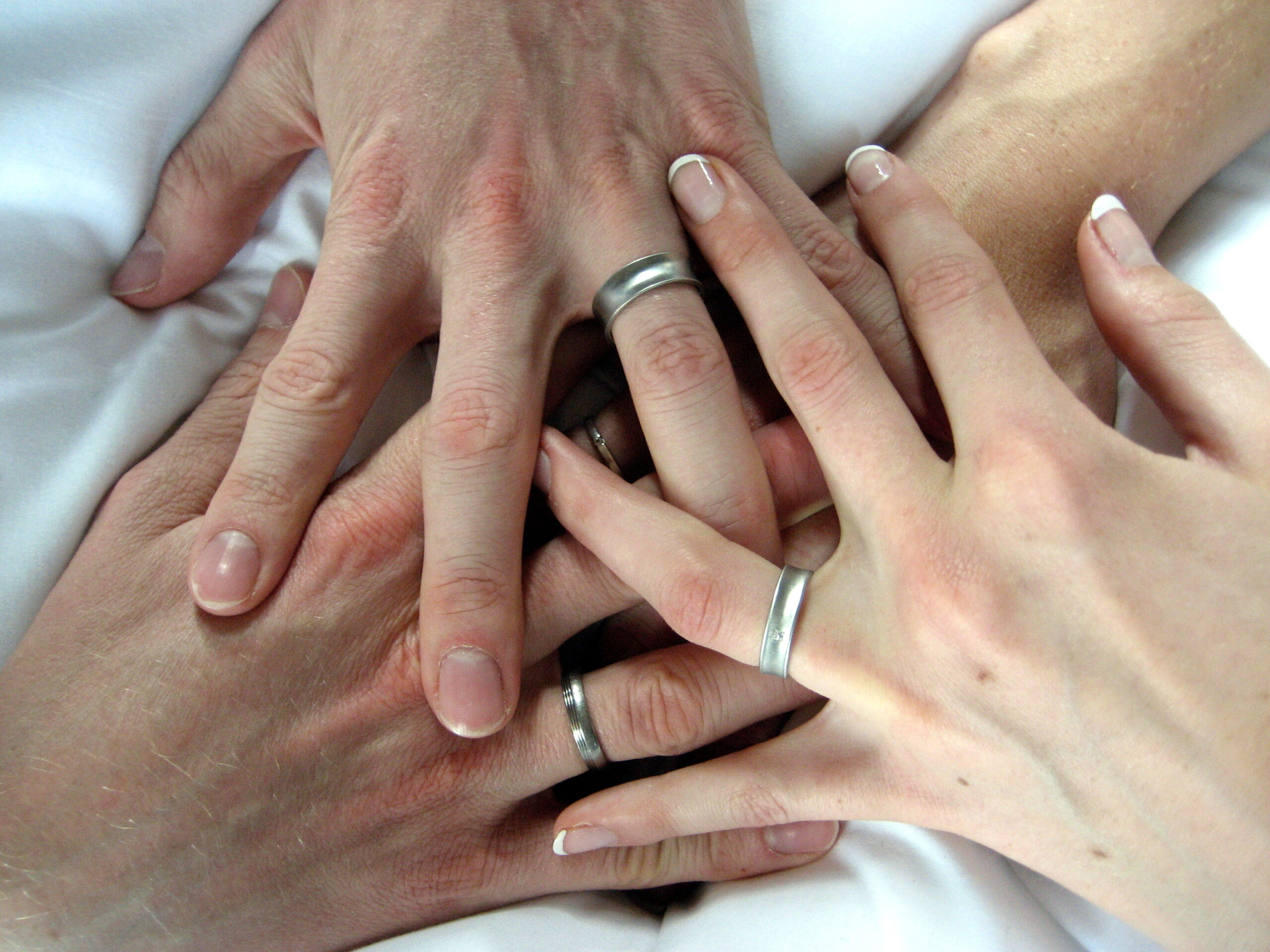Love encompasses a spectrum of emotions, including passion, commitment, care, and more. While these emotions are ways of expressing love, there is no fixed formula; it’s a canvas for personal interpretation. However, certain feelings are easily discernible, especially rejection. So, what occurs when your affection isn’t returned? It’s one of the most disheartening situations one can face. Begging for love is the last thing you should do. If you find yourself in this situation, I would advise you to read this short article and decide for yourself. My only advice is never to beg to be loved.
Within the intricate fabric of human relationships, the pursuit of love often stands as a significant aspect of life’s journey. However, there exists a fine line between authentically expressing affection and resorting to begging for love.
This article delves into the profound and often detrimental consequences associated with the act of begging for love within relationships. Beyond the immediate emotional toll, the act of begging for love can erode one’s sense of self-worth, disrupt power dynamics, and give rise to unhealthy emotional dependencies. Let’s explore the intricacies of this behavior and its wide-ranging effects.
- Impact on Self-worth:
Begging for love carries with it the implication that you believe yourself undeserving of affection and validation. This belief can significantly undermine your self-esteem and self-worth. Constantly seeking external approval to validate your own worthiness can lead to neglecting your intrinsic value, ultimately resulting in a negative self-image.
Over time, this self-doubt can permeate various aspects of your life, affecting your confidence, decision-making, and overall well-being. It is vital to remember that love should serve as an enhancer of self-worth rather than a detractor.
- Authenticity in Relationships:
Authenticity stands as the cornerstone of healthy relationships. Love is ideally freely given and received, not coerced or begged for. When one resorts to begging for love, authenticity often takes a backseat in the relationship dynamic.
Actions and words may become motivated by a desire to appease and please rather than conveying genuine thoughts and emotions. This lack of authenticity can foster feelings of resentment and dissatisfaction, ultimately undermining the quality of the relationships involved.
- Impact on Power Dynamics:
The act of begging for love can introduce an unhealthy power dynamic into relationships. It often manifests as one person consistently seeking validation and affection, while the other holds the power to grant or withhold it, resulting in an inherent imbalance.
This power disparity can give rise to emotional manipulation and control. The individual being sought after may exploit their position, and the one pleading for love may experience disempowerment, trapped in a cycle of dependency.
- Emotional Dependency:
Begging for love frequently leads to emotional dependency. Emotional well-being becomes tightly intertwined with someone else’s validation and affection, rendering one’s happiness contingent on external factors.
Moreover, this emotional reliance can limit one’s ability to self-soothe and discover internal sources of happiness and contentment. Healthy relationships thrive on interdependence, where both partners maintain emotional autonomy while offering support to each other.
- Manipulative Behavior:
The act of begging for love can be viewed as a form of emotional manipulation. It involves utilizing guilt, pressure, or emotional pleas to coerce someone into displaying affection. Manipulation undermines trust and authenticity in relationships, making it challenging for genuine connections to flourish.
This behavior can also generate discomfort and resentment in the individual subjected to the begging, as they may feel trapped or pressured into reciprocating feelings they may not genuinely share.
- Also Read: How to seek help from Love Guru
- Lack of Reciprocity:
Love ideally exists as a mutual and reciprocated experience in healthy relationships. However, begging for love frequently results in one-sided relationships where one’s needs and desires are not met to the same degree as the effort put into meeting the other person’s needs.
This absence of reciprocity can leave one feeling unfulfilled and unappreciated, as their endeavors to secure love are not met with equal enthusiasm. Balanced and mutually affectionate relationships thrive on reciprocity.
- Inequality:
Begging for love can introduce an unequal dynamic into relationships, where one individual consistently seeks validation while the other possesses the power to grant or withhold it. This imbalance may breed resentment and insecurity in the person who is pleading for love.
Furthermore, it can impede effective communication and problem-solving within the relationship, overshadowing the ability to address issues openly and honestly.
- Loss of Dignity:
The act of begging for love can erode one’s sense of dignity and self-respect. Essentially, it involves pleading for someone’s affection, often involving compromises to self-worth and values. This can lead to feelings of humiliation and frustration.
Preserving one’s dignity in a relationship holds paramount importance for maintaining a healthy self-image and fostering mutual respect. Begging for love undermines this dignity and can result in emotional distress.
- Unhealthy Attachment:
Begging for love often nurtures an unhealthy attachment to someone else. One’s emotional well-being becomes excessively reliant on another person’s validation and affection, resulting in an imbalanced relationship.
Unhealthy attachments can lead to anxiety, jealousy, and fear of abandonment. Cultivating self-sufficiency and emotional resilience becomes essential to ensure that happiness does not solely depend on external sources of love and validation.
- Eroding Trust:
The act of begging for love can erode trust within relationships. When actions are driven by an incessant need for validation, they can be perceived as desperate and insincere by one’s partner.
This perception can undermine the trust required for healthy and meaningful connections. Trust is built on authenticity and emotional honesty, and begging for love may compromise both of these essential elements.
- Emotional Exhaustion:
Constantly begging for love can be emotionally exhausting. The incessant need for validation and reassurance can lead to an unending cycle of seeking external affirmation, often resulting in sleepless nights and emotional fatigue.
This emotional exhaustion can hinder the ability to engage fully in other aspects of life, impacting overall well-being and happiness. Healthy relationships are designed to provide emotional support and rejuvenation rather than an emotional drain.
- Unfulfilling Relationships:
Begging for love frequently culminates in unfulfilling and unsatisfactory relationships. These connections are primarily rooted in neediness rather than genuine emotional connection and mutual affection.
In such relationships, the central focus often becomes the quest for external validation, sidelining the nurturing of a meaningful bond founded on trust, authenticity, and shared experiences. Ultimately, unfulfilling relationships can contribute to feelings of loneliness and dissatisfaction.
- Hindrance to Personal Growth:
Begging for love can hinder personal growth and development. When the primary focus becomes the pursuit of external validation, self-improvement, and personal goals may be neglected.
Healthy personal growth encompasses self-reflection, self-care, and the pursuit of passions and interests. Begging for love may divert one’s attention from these crucial facets of personal development.
- Lack of Boundaries:
Begging for love often blurs boundaries within relationships. In the quest for affection, one may compromise their values and needs in an attempt to gain love and acceptance.
This blurring of boundaries can result in unhealthy relationship dynamics, where one’s priorities are relegated to the pursuit of love rather than the preservation of personal values and needs. Healthy relationships require well-defined boundaries that respect both one’s needs and those of their partner.
- Perpetuating Unhealthy Patterns:
Begging for love tends to perpetuate unhealthy relationship patterns. It reinforces the belief that one is undeserving of love unless one continually begs for it.
Over time, this pattern can become deeply ingrained, making it challenging to break free from the cycle of seeking external validation. Shifting away from these patterns is crucial for fostering healthier and more fulfilling relationships.
- Loss of Emotional Independence:
Begging for love often leads to a loss of emotional independence. Your emotional well-being becomes closely tied to the whims and actions of another person, leaving you vulnerable to their moods and decisions.
Emotional independence is vital for maintaining a sense of self and resilience in the face of life’s challenges. Relying heavily on someone else for emotional support can hinder your ability to navigate difficult situations on your own.
- Unhealthy Coping Mechanisms:
The overwhelming desire to secure love can drive individuals toward unhealthy coping mechanisms. When the pursuit of love becomes all-consuming, some may resort to substances or other addictive behaviors as a means of escape or self-soothing.
These coping mechanisms often lead to a host of additional problems and can exacerbate the emotional distress associated with begging for love. Seeking healthier coping strategies and professional support is essential for breaking free from this damaging cycle.
- Strained Relationships:
Constantly begging for love can strain relationships to the breaking point. The emotional toll it takes on both parties involved can lead to frequent conflicts and misunderstandings.
Over time, this strain can weaken the foundation of even the strongest relationships. Repairing these fractures often requires open communication, a commitment to change, and a shift away from codependency toward healthier relationship dynamics.
- Diminished Self-Reliance:
Begging for love can diminish your sense of self-reliance. When you continually seek external validation, it can be challenging to trust your own judgment and make independent decisions.
Restoring self-reliance involves building confidence in your abilities, recognizing your inherent worth, and acknowledging that your happiness is not solely dependent on someone else’s affection. Cultivating self-reliance can lead to more balanced and harmonious relationships.
- Hindrance to Personal Fulfillment:
Ultimately, begging for love can hinder your path to personal fulfillment. Your happiness becomes contingent on the actions and affections of others, rather than stemming from a sense of self-worth and internal contentment.
Personal fulfillment is achieved through self-discovery, pursuing passions, setting and achieving goals, and nurturing meaningful relationships based on mutual respect and authenticity. Breaking free from the cycle of begging for love is a crucial step toward realizing your own potential and living a more fulfilling life.
Thus, the act of begging for love can lead to a myriad of damaging consequences. From eroding self-worth and authenticity to perpetuating unhealthy patterns and straining relationships, its effects are profound and far-reaching.
Healthy relationships are built on the foundations of mutual respect, authenticity, and the understanding that love should never be begged for but freely given and received. In the pursuit of healthier, more fulfilling relationships, one must begin by valuing their own self-worth and well-being above all else

Naorem Mohen is full time Blogger and helps parent improve their parenting skills, resulting in better relationships with their children. He also provides guidance to individuals and couples to enhance their relationships and communication. Naorem supports people in need to help them in their personal growth, helping them set and achieve meaningful goals.







Comment on “20 Emotional Tolls of Begging for Love in Relationships”
Comments are closed.